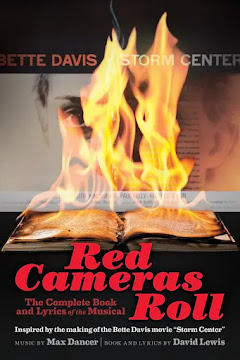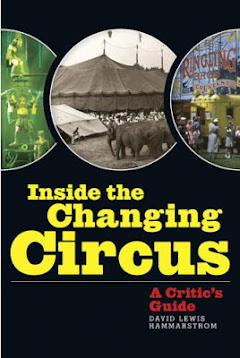He was the ticket seller everybody liked. Midway in Bill Taggart's 1955 season with Ringling, he reaches an unexpected detour in the road. He is assigned to go on the advance ticket sales to fill in for another ticket seller on the sick bay.
The circus employed seven men that season, who each leapfrogged, handling select dates, setting up a booth in a local store, staying there from a few days to sometimes over a week.
Taggart’s first town was an eight-day stint in Jonesboro, Arkansas, where he stayed at the Noble Hotel. What a far cry from how the advance is worked today.
“I was well aware of the fact that I was in the segregated south, and you did not see blacks on the street at night and few in the daytime. I remember the black porter who worked at the store where the advance sale was. He was friendly, but shy. No black ever bought advance sale tickets.”
Once the circus reached up with Bill, the next day he was sent ahead to his next stop, to handle the advance in Barrett’s drug store in Greenwood, Miss. “I liked eating at the post office cafe ... There were lots of interest in the 1955 edition of the Greatest Show on Earth, and I was proud to be working ahead of the show. I remember lots of middle aged and older people checking out my big top seating plan and by late in the afternoon I had a good first day ...”
Looking for a camera at the Greenwood Camera store, he made friends with a "sales chap," and at the drug store, with a young medical student it employed. “Once in a while he joined me at the hotel for dinner and drinks.”
I’ve anxiously waited this particular season from Taggart’s pen just to see how he would treat the Richmond, CA date. It was there where I saw Ringling-Barnum under the big top for the one and only time in my life. His details are regretfully few. In a season of many so-so days, few marked by great overflowing crowds, Taggart remembers strong customer turnout in Richmond. So do I.
“We had a fair matinee and a good house that night.” Yes, it was very good at night. That was the performance I attended, and the tent seemed nearly full to me.
Bill's story has a quiet appeal for any good and hopeless Ringlingphile; Because we are traveling on the Big Show, every little encounter can seem bigger than life.
After working a few towns, Bill got to return to the show itself and resume his regular duties, some in the yellow ticket wagon. But he proved to be a very fine goodwill ambassador ahead of the circus. In one city, he was invited to talk about the circus several evenings on a local radio station. It “helped to boost my ticket sale at the drug store. I had dreams of becoming a pres agent like Frank Braden or a radio man like Bev Kelly.”
And, then, in Ft. Lauderdale, Florida, Bill was so liked by one Mr. and Mrs. Fincher, who dropped by the store to purchase reserved seat tickets, that a dinner invitation ensued. “Wow, I thought to myself, I was actually going to be in a real house.” He became good friends with the Finchers, and they corresponded for many years.
Another meal in Ft. Lauderdale would prove to have historic meaning.
“No one could have possibly imagined that this was the last Thanksgiving dinner served by the great Ringling Bros. and Barnum & Bailey cookhouse.”
The last full season was soon coming to an end. Taggart’s graceful account, attractively illustrated in Bandwagon, with some of Severe Braathen’s brilliant color photography, leaves us all with an up close and personal route book, complied by a young man liked by many who harbored visions of a career under the greatest of big tops. A career that, sadly, came to a sudden end when the big top came down for the last time, the following July, in Pittsburgh, PA.
[the color photography you see here, not ideally reproduced, first appeared in a lavish Life magazine spread "New Shine for the Circus" -- and, who knows, might not appear here for long]
posted circa 2010






























3 comments:
Hi Dave,
I to really enjoyed reading about Bill Targets adventure with Ringling.
It was better than any route book I have read.
I was glued to the Bandwagon reading about all that went on.
But what was very disappointing to me it got to Victoria, Tx and now they were getting close to me.
And then it jumps to New Iberia, Louisiana.
So no information on Houston, Galveston, and Beaumont where I live.
My mother took me to the show in Beaumont and the tents were pitched right next to Mobil oil refinery and I remember all those elephants.
In later years I wrote to Noyles Burkhart and he told me about Beaumont.
He said after the 2pm show a sheriff deputy came up to him and said Mr. if you do not separate the whites from the blacks your butt is going to jail.
Which he did and I can just picture what went on here.
Life goes on in a small Texas town.
Harry in Texas
Hi Harry,
Noyelles Burkhart, a crusty steely spined character, was one of the absolute best interviews I ever had. He took me, like he took you, into the trenches.
I give credit to Bill for acknowledging the tense racial scene in the south in 1955, and how tricky it could be to navigate through. He was smart enough to conduct himself obviously in a way that reflected well on the show. No wonder they sent him ahead!
Hi David,
Noyelles in a letter described what happened when the prop crew stuck in Minneapolis and to get the show moved on to St Paul.
He said he went to cars and rallied the Cole crew and got the damn thing moved to the next town.
John Ringling North resented it and held it against him.
It is folks like Noyelles and Jess Adkins that knew what to do and was with it and for it and was on the show not out eating and having fun at 2 am.
Great memories of the way it was.
Harry in Texas
Post a Comment